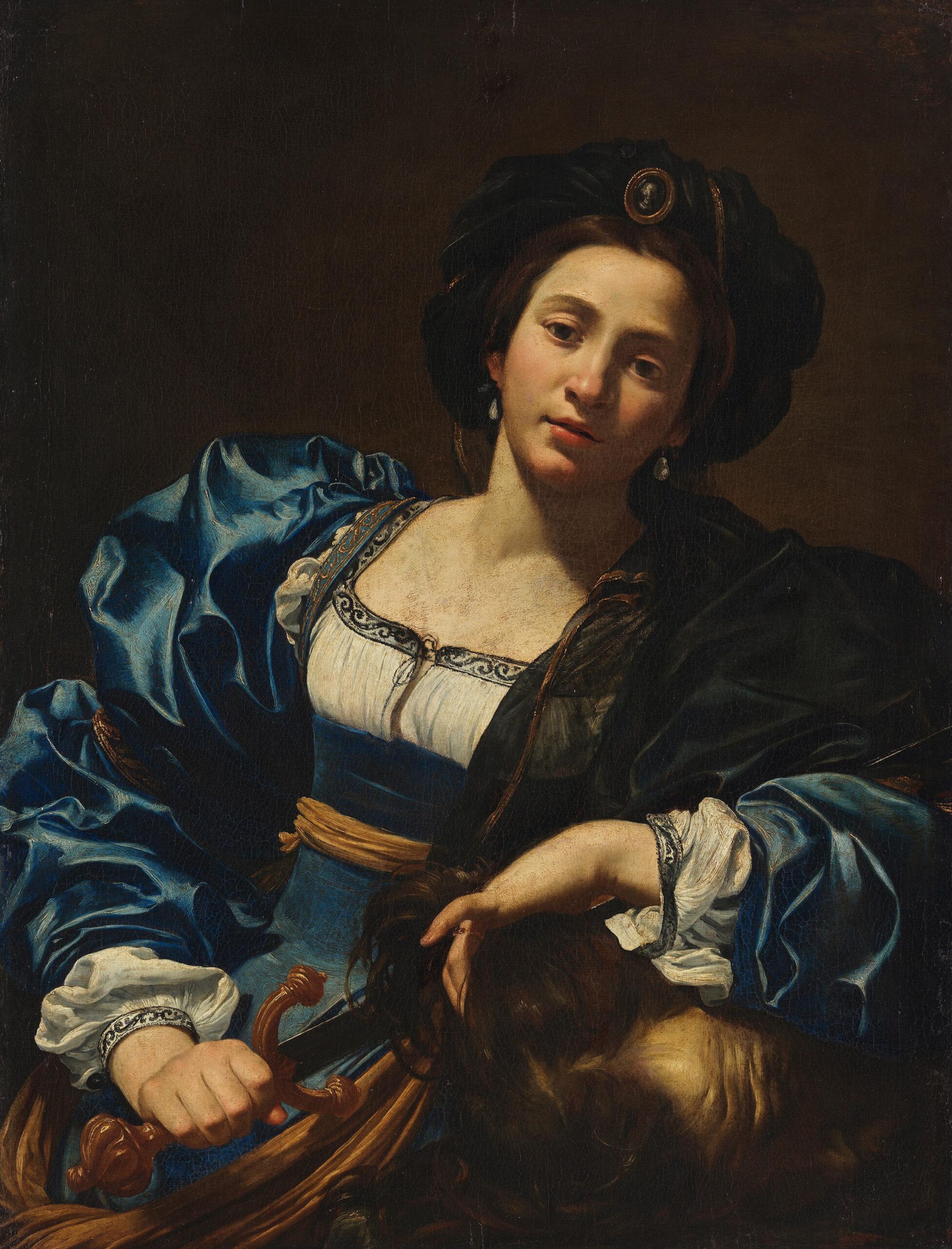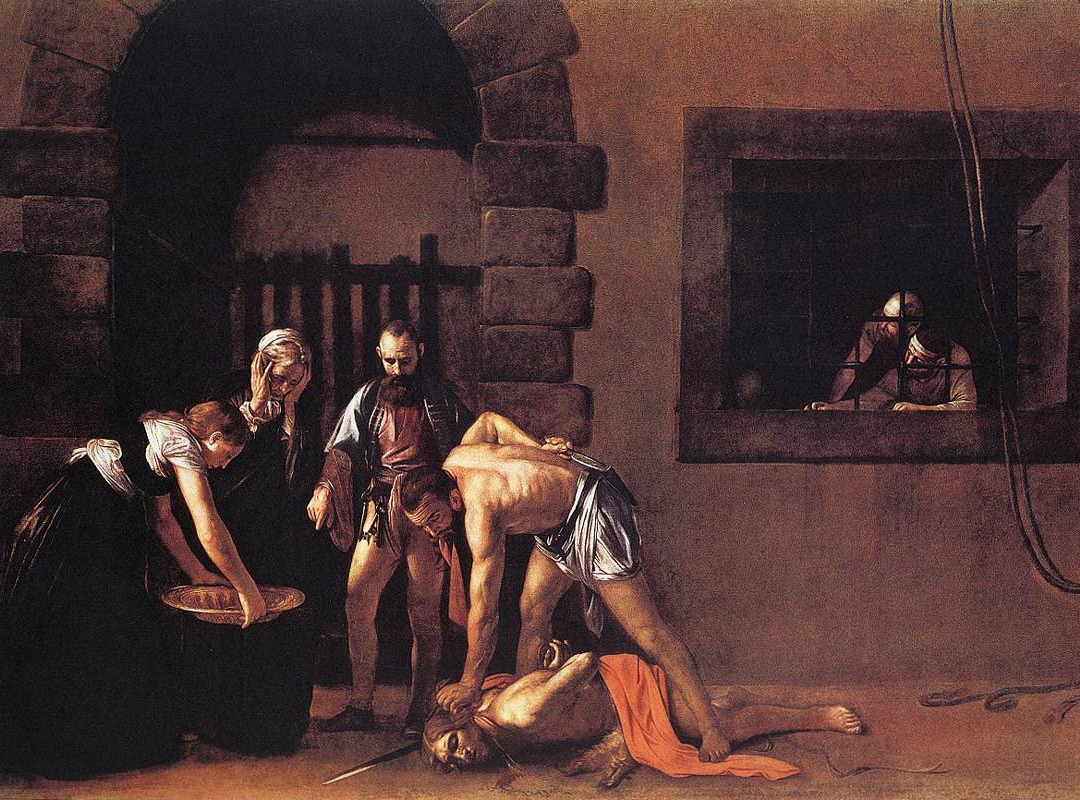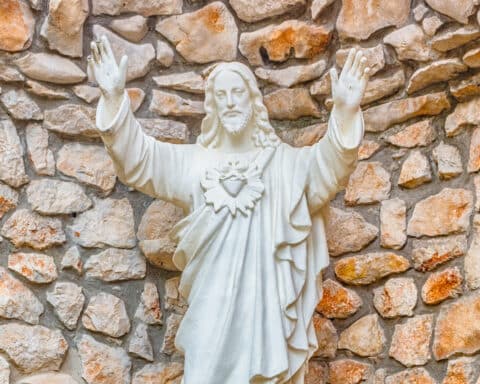John the Baptist stands apart in a number of ways: he is the forerunner of Christ, regarded by Jesus as “greatest among the prophets,” and even has two feast days in the Church calendar. One of these feast days is “The Passion of St. John the Baptist,” celebrated on August 29.
As I discussed the passage which tells the story of John the Baptist’s death (Mark 6:17-29) with my friend Jessica, she shared a few insights that utterly transformed how I understood the passage. She elaborated on the circumstances surrounding John the Baptist’s death and how he not only parallels another strong biblical character from the Old Testament, but also strongly prefigures Christ’s own passion.
An Old Testament parallel
A king ravished by lust. A lavish banquet. A beautiful woman. A beheading. It’s a dramatic story, and yet, I am not referencing the story of John the Baptist. In fact, one could say that John’s story is prefigured in the book of Judith.
Judith begins by setting the stage: an oppressive king and his army have all but overtaken the Israelites, who despair and are on the verge of surrendering to the king’s general, Holofernes. Judith, a beautiful widow and judge in the community, rebukes the leaders of the Israelites by saying that God is putting them to the test and that they should trust in him for salvation. She takes it upon herself to face Holofernes, telling the Israelites, “I will perform a deed that will go down from generation to generation among our descendants.” (Judith 8:32)

When Judith reaches the Assyrian camp and encounters Holofernes, impressing him and his army almost immediately by her beauty and wisdom. She even asserts her autonomy and maintains her dignity, proclaiming that she intends to continue worshiping the Lord even as she is in an enemy camp. Holofernes, overcome by lust, later says to his servants, “It would be a shame on us to be with such a woman without enjoying her.” (Judith 12:12) He calls her to his tent for a rich banquet, where he drinks “a great quantity of wine, more than he had ever drunk on any day since he was born.” (Judith 12:20) Thoroughly inebriated, he passes out, and Judith, praying again to God for strength, draws his sword and beheads Holofernes. She brings the head of Holofernes back to her people, where she is praised for her courage: “…because you risked your life when our people were oppressed…walking in the straight path before our God.” (Judith 13:18)
A modified version of Judith’s story
In Mark’s Gospel, we hear a story with familiar themes. A sinful king is celebrating with a lavish birthday party and a young woman, his stepdaughter, is called to join them. She wins the king and the men over quickly with a dance. However, while sounding similar, there are some key differences that contrast to the story of Judith.
The age of the girl is not explicit. Judith is described as a widow, beautiful, and revered among her people as a leader. In this passage, the female character is simply described as “girl.” In fact, the word used is the Greek word “korasion,” more closely meaning “little girl” or “maiden,” suggesting that she may be much younger than we may initially assume. It is also said that the dance “pleased” Herod — the use of this word more literally means “excited the emotions,” indicating more of a lustful reaction, akin to Holofernes’ reaction to Judith. After Herod gives her extravagant promises, she immediately returns to her mother to ask what she should request. This would rightfully cause us to, again, question how much freedom this girl has in her actions, unlike Judith who faced Holofernes of her own free will and kept her integrity. In sum, the pieces of this puzzle of “who is Herod’s stepdaughter” point more to a victim of trafficking than a beloved member of the community.
There is one key element of this parallel we haven’t addressed: the beheading. Whether John even knew of Herod’s stepdaughter’s existence is uncertain, but he surely knew of the sinfulness that penetrated the family. It was because of his confrontation with Herod and Herodias that got him imprisoned. Like Judith, he was unafraid in the face of his country’s leaders, calling them out for their sinfulness and rebellion against God. While John’s similarities to Judith are amazing, God has chosen to take John’s story one step further by elevating John to imitate one more person: Jesus.
The Forerunner is a Christ-figure
Though his stage-time is brief, St. John the Baptist is perhaps one of the most powerful and important characters in salvation history. Jesus himself even said in Matthew 11:11, “Amen, I say to you, among those born of women there has been none greater than John the Baptist.” (not unlike when the Israelite leaders refer to Judith as “blessed above all the women on earth” [13:18]) In spite of his greatness, John humbled himself in the presence of Christ, saying “He must increase, and I must decrease.” (John 3:30) As God does with all who strive for holiness, John was allowed to become more deeply conformed to Christ, even by his death.
In Leviticus, the primary consequence to any sexual sin is the shedding of blood. Per Mark’s account and the exploitation found therein, one could argue that it would have been just if Herod’s birthday also became his death day. And yet, God, in his Providence, chose to use this scenario to prophesy the ultimate sacrifice that was to come. John the Baptist not only foretold the Messiah by his preaching, but by his actions and how he lived. Certainly, John would have embraced his role and pointed to Jesus once more by taking on the punishment that Herod’s family should have incurred.
John the Baptist perfectly conformed his life to Christ’s by also laying down his life so that others might live. By paralleling the story of Judith, John’s martyrdom tells the story of God’s justice. By prefiguring Christ, his martyrdom also proclaims God’s mercy.
The Baptist’s life and ours
While we may never face evil kings or (hopefully not) beheadings, we can still look to St. John the Baptist as an example in our own lives. By speaking up for truth and advocating for justice, we can be assured of doing God’s work. But even moreso, the actions of our lives are best lived when they are also shrouded in God’s mercy. May we too preach the Gospel fearlessly through our words and with our very lives.
St. John the Baptist, model of justice and mercy, pray for us!
Special thanks to Jessica Dudek, director of evangelization for Christ the King parish in Ann Arbor, Michigan and host of the podcast “The Everyday Evangelist,” for her contributions to this article.





